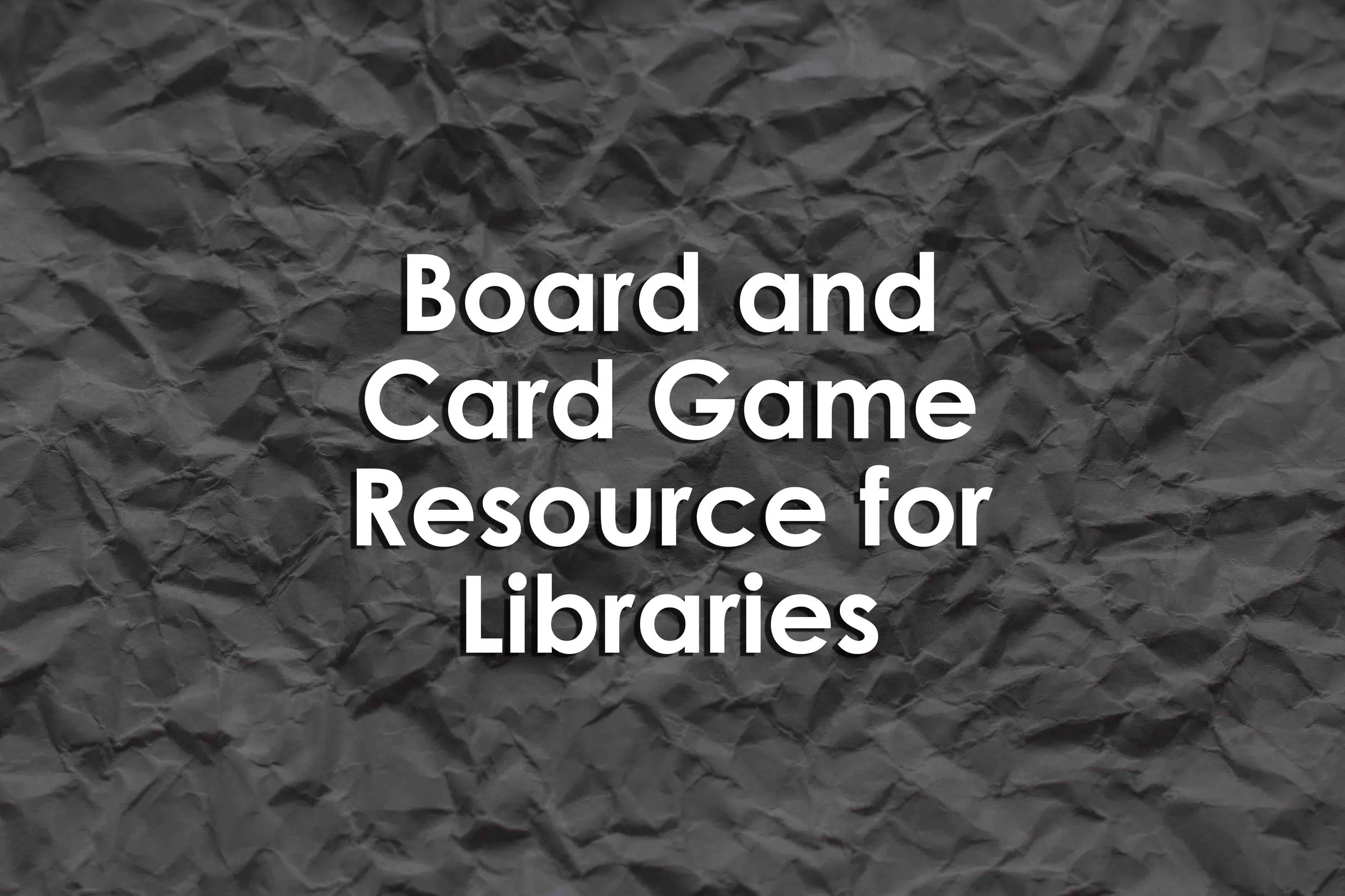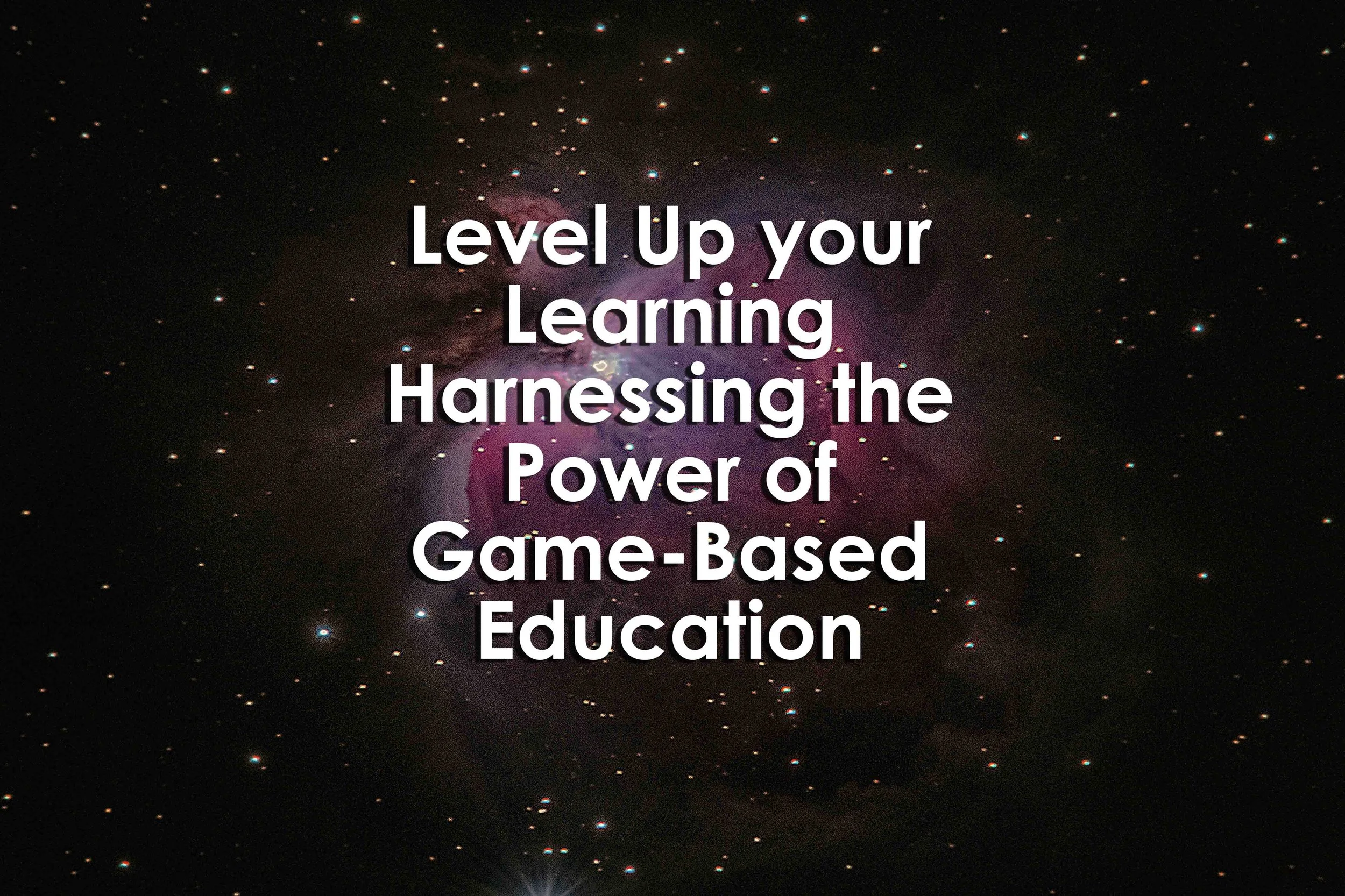Join the 2025 Board Game Design Virtual Summit from February 4–10, 2025! Access expert interviews, live Q&A panels, and insights from leaders like Matt Leacock and JT Smith. Network on Discord, playtest games, and choose from flexible passes, including the Free Pass or the all-inclusive Ultimate Pass with lifetime access and bonuses.
Read MoreIn recent years, video games have become pervasive in American childhoods, with over 90% of children engaging in gaming regularly. Despite concerns about their impact on education, research from Brunel University London indicates that incorporating video game elements into learning environments can significantly enhance student engagement and learning outcomes.
Read MoreScott Nicholson from Wilfrid Laurier University is collaborating with the mEducation Alliance to create a resource for libraries in low-resource settings, focusing on board and card games. The initiative aims to compile games that are easy to explain, engaging, and robust enough for long-term use. Key criteria for selection include robustness, explainability, table presence, engagement, and overhead. Community members are invited to suggest suitable games via a Google Document. This project seeks to empower youth to teach games in libraries, fostering community connections and learning. For more information, contact Scott Nicholson at scott@scottnicholson.com
Read MoreThe Games-Based Learning Virtual Conference (GBLVC) 2025 invites session proposals for its annual three-day virtual event from June 6-8, 2025. Hosted by the Games-Based Learning Alliance and University XP, GBLVC fosters discussions among educators, designers, and professionals on using games for teaching and training. Sessions can be pre-recorded or live, with diverse topics including gamification, professional development, and culturally relevant games. Proposals are due by December 8, 2024, with notifications sent by January 13, 2025. Presenters receive complimentary conference access. GBLVC promotes diversity and encourages participation from varied backgrounds.
Read MoreFrom gamification strategies to serious games explicitly designed for learning purposes, integrating gaming into education can enhance cognitive skills, foster creativity, and develop problem-solving abilities. One of the most significant benefits of incorporating gaming into education is its ability to enhance cognitive skills such as memory, attention, and problem-solving.
Read MoreFrom an astrophysicist's journey into the cosmos to learning maritime archaeology through shipwreck investigations, University of Wisconsin-Madison educators have designed numerous educational games to aid students in their learning.
Read MoreIn this article, we will explore how game-based education can take your learning to the next level. Click and read more about it.
Read More"Serious Game" Group Practices German, Explores History Through Video Game
Read MoreOn Friday, Feb. 9, a small group of select librarians and teachers from across the state will gather with game designers and scientists for a day-long workshop in Madison to develop a new educational computer game that will take learners to the furthest reaches of space.
Read MoreThe introduction of technology has profoundly changed the way that knowledge is taught and learned. Technology has become an essential aspect of education, especially when it comes to digital learning. Here's a look at how innovations are transforming and reshaping the landscape of education.
Read MoreBeyond traditional learning methodologies, different tech-oriented learning strategies have emerged, providing learners with enhanced educational experiences.
Read MoreIn the ever-evolving landscape of education, the incorporation of gamification has emerged as a revolutionary paradigm shift, transforming traditional learning environments into dynamic, engaging spaces. Let's delve into the transformative impact of gamification on learning, exploring how it enhances motivation, promotes skill development, and cultivates a love for lifelong learning.
Read MoreThis exploration delves into the multifaceted realm of gamification in education, uncovering the principles, benefits, challenges, and the transformative potential of turning learning into a game. Gamification in education involves incorporating game elements, such as point systems, badges, and leaderboards, into non-game contexts to enhance engagement and motivation.
Read MoreFrom ancient times to the modern day, board games have been a source of entertainment, education and intellectual stimulus for centuries. We take a look at the fascinating history of board games.
Read MoreA new study by our top-rated Computer Science department proposes an innovative model aimed at facilitating collaboration between educators and video game designers in order to create more effective game-based learning tools.
Read MoreExploring the world of gamified learning is akin to embarking on a thrilling adventure, where the conventional boundaries of education blur, giving way to interactive and engaging experiences. Beneath the surface of gamified learning lies a complex web of mechanics designed to captivate and motivate students.
Read MoreThe 'Calm Your Farm' game, created through a UNSW Sydney-led research collaboration, increases knowledge and awareness about farm safety. This project is supported by the Department of Agriculture, Fisheries and Forestry, through the National Farm Safety Education Fund: Improving Farm Safety Practices grant program.
Read MoreIn the ever-evolving landscape of EdTech, the incorporation of gamification has emerged as a dynamic strategy to revolutionize and enhance the learning experience. By integrating game elements into educational platforms, educators aim to engage, motivate, and inspire students in ways traditional methods often fall short.
Read MorePeople need an AI education - and fast, because the technology is evolving at speed. Could a fighting game be an easy way to gamify the process of AI education? Could we use gamification to educate people in AI at every level?
Read MoreGraphoGame, a game supporting children in learning and developing their mother tongue, is the first Finnish company to receive the UNESCO King Sejong Literacy Prize this autumn. The literacy software and e-leaning methodology GraphoGame was awarded as a result of decades of research and development.
Read More




















